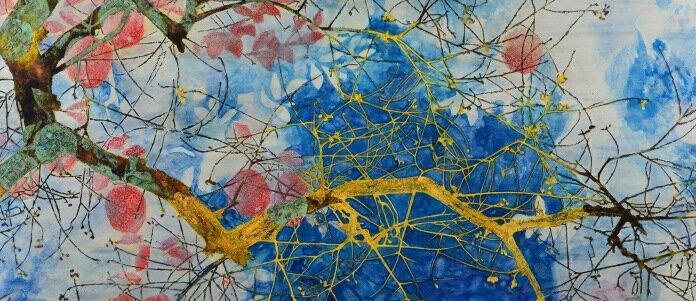This Thursday, Sonoma State University kicked off Asian-American & Pacific Islander (AAPI) History and Heritage Month with an opening ceremony. The keynote speaker for the event was Margaret Huang, President and Chief Executive Officer of the Southern Poverty Law Center (SPLC).
Huang is an advocate for human rights and racial justice. Prior to working for the SPLC, she served as the executive director of Amnesty International USA. With this role, she was responsible for leading campaigns to protect the human rights of migrants and refugees, torture survivors, gun violence victims, activists, and protestors across the globe. She has also worked with the U.S. Congress on many key pieces of legislation.
AAPI History and Heritage Month celebrates the achievements, contributions and history of Asian Pacific Islander Americans in the United States. Although AAPI Heritage Month takes place in May, Sonoma State University celebrates it in April in order to accommodate the academic calendar, as well as providing a full month to recognize our Asian, Native Hawaiian, and Pacific Islander communities.
The opening ceremony focused largely on the increase of violence against the AAPI community, and the advent of the Stop Asian Hate activist movement. Jerlena Griffin-Desta, Ph.D., who is the Chief of Staff & Vice President of Diversity and Strategic Initiatives, gave a statement on behalf of SSU at the beginning of AAPI History and Heritage Month. Griffin-Desta stated that, “while Sonoma State University leadership condemns the violence, we know that pronouncements are appropriate and necessary, but not sufficient…students, staff, and faculty are partnering with community agencies to address anti-Asian racism, as part of our broader work to dismantle the structural racism leveled at communities of color.”
Huang talked with faculty, staff, students, and community members from SSU and Santa Rosa Junior College to talk about the important issues addressed by SSU. Much attention was brought to the broader movement, which calls to defund the police and end state-sanctioned violence against communities of color. Participants at this event were given the chance to ask Huang questions, as well as share thoughts, ideas, and opinions on these complex subjects. The conversation did not stay focused solely on hate crimes faced by Asian-Americans in the United States, but critiqued and discussed matters that impact prejudices. Topics of this discussion includes U.S. foreign policy, the fetishization of Asian women as sex-workers, and the structural barriers that work against all people of color in the United States.
Huang said, “There’s no way to talk about issues of racism and discrimination in this country without acknowledging that there are so many stories that make that up. We cannot talk about racism without understanding the original racism against Indigenous people on these lands. We cannot talk about the cultural appropriation of all of the different communities that have had to give up their history and their culture and their beliefs and practices, as they have been forced to integrate and assimilate into the U.S. experience. This is widespread.”
The widespread nature of this issue is exactly why Huang went on to emphasize that the AAPI and other communities of color should find solidarity and allyship with each other. Huang added that “the AAPI community will never achieve racial justice if we aren’t unified with other communities of color in our struggle.”
AAPI History and Heritage Month at SSU will take place over the month of May, with a total of fourteen events. These events will range from film screenings, in conjunction with seminar-style discussions following the films, to guided meditations and virtual cooking classes. All of these events will aim to celebrate the culture and history of the AAPI community.
The AAPI History and Heritage Month Opening Ceremony was an insightful gathering of students, faculty, and staff. Huang ended the event by reminding participants that everyone has something to learn, saying that the AAPI community can learn from each individual’s experiences. Huang finished by stating that “our community is not monolithic. We probably have as many stories in our community as there are across the country; it is a diverse region, it is a diverse experience, and there is so much we have to learn from each other as AAPI folks.”
COURTESY // Asian Contemporary Art
Sonoma State begins celebrations of Asian-American & Pacific Islander History and Heritage Month for the month of May, largely focusing on the violence against the AAPI community.





































